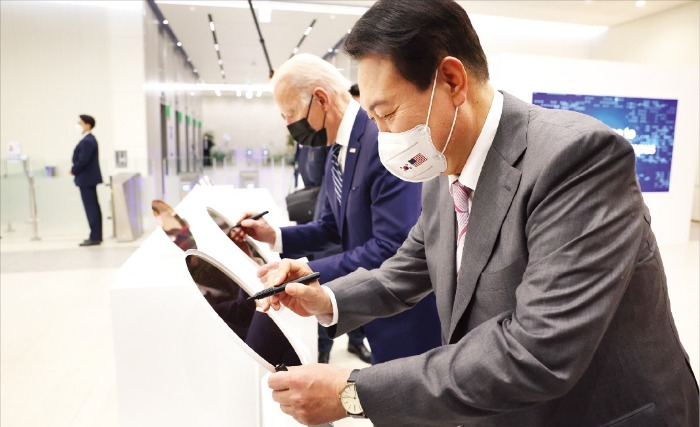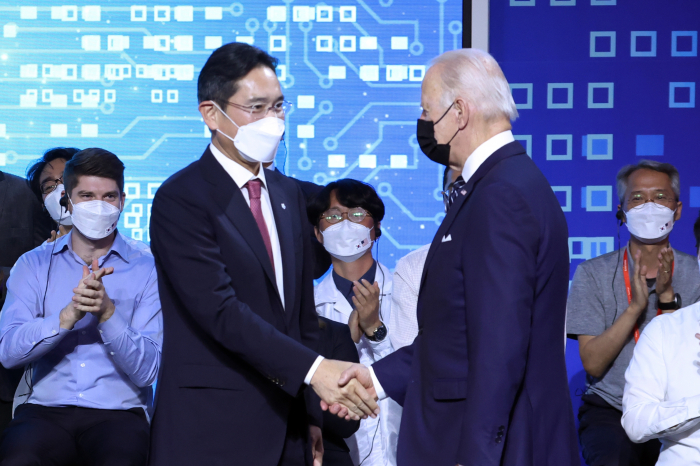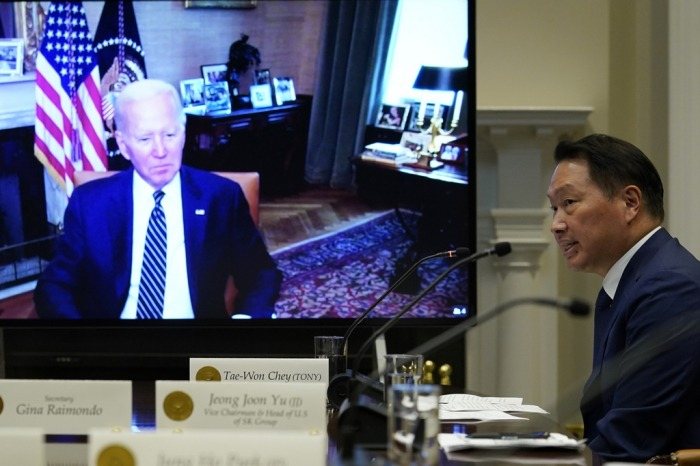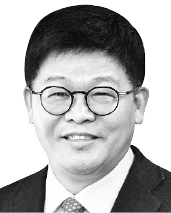The KED View
Superpowers without dignity as China-US tensions grow
Washington's political populism to contain China raises doubts about its relationships with allied countries
By Oct 07, 2022 (Gmt+09:00)
4
Min read
Most Read
Samsung shifts to emergency mode with 6-day work week for executives


Alibaba eyes 1st investment in Korean e-commerce platform


Blackstone signs over $1 bn deal with MBK for 1st exit in Korea


NPS loses $1.2 bn in local stocks in Q1 on weak battery shares


MBK eyes stake in Korean software developer Tmaxsoft



ŌĆ£The greatest danger that can befall us in coping with this problem of Soviet Communism is that we allow ourselves to become like those with whom we are coping.ŌĆØ
This quote comes from the Long Telegram sent in 1946 by George Kennan, a revered American diplomat and advocate of containment to the Soviet UnionŌĆÖs expansion, to President TrumanŌĆÖs State Department.
His warning offers a hint at how the US would handle its confrontation with China as it looks ready to decouple from the Asian power.
But if Washington wants to work together with its allied countries to cope with China, at the least it should not arouse doubts among them.
Paul Krugman, a Nobel Prize-winning American economist, built the theoretical structure of strategic trade policy in the 1980s.
Under the theory, a country needs to increase R&D spending, provide subsidies and implement protectionist policies to nurture cutting-edge strategic industries, thereby securing a competitive edge and dominating a market by beating rival countriesŌĆÖ firms through oligopolistic competition.
As Krugman cautioned, however, the theory would be difficult to apply to real-world trade and itŌĆÖs hard to deny that strategic trade policy distorts international trade.

POLITICS, SECURITY OVER ECONOMY
Now the global trade landscape is more dangerous and serious than it was in the 1980s. The World Trade Organization has lost its clout after the US turned its back on the intergovernmental body. Politics and security overshadow the economy.
Despite WashingtonŌĆÖs argument that its trade policy is aimed at reorganizing global supply chains, it is now disrupting the world trade systems and pressing its allies to move cutting-edge technologies and facilities they nurtured to the US.
Without a doubt, that is a superpowerŌĆÖs one-sided logic. If it is a message to the allies that they must gain favor with the US to survive, it would be the so-called 21st-century version of the tributary trade.
That means Washington is abandoning economic and trade theories and going its own way, without listening to others.
Krugman seemed to have turned a blind eye to the exploitation of tributary states, although he took a cautious stance on the adoption of strategic trade policy.

There is no question that China has too many systematic flaws to become a predominant power in the world.
Washington had bashed BeijingŌĆÖs nationalism, combining politics and capital. But the world's largest economy is now becoming like China, which is dangerous to the US itself.
China should be criticized for illegally using other countriesŌĆÖ high-tech intellectual property. But the US is not free from the criticism that it is abusing its intellectual property power, which might disqualify it from the position of a superpower.
KING DOLLAR, POLITICAL POPULISM
The King Dollar is a good example of Washington's unilateral policy. If it downplays the side-effects that the strengthening dollar causes its allies by using it as a means of economic sanctions, it would leave them with few policy options. Then, the US must yield its position as a reserve currency.

From the perspectives of its allies, WashingtonŌĆÖs main enemy is not China, but its political populism. For that reason, other countries are casting a wary eye on the possibility that populism may win more backing from American voters in the November mid-term elections and the 2024 presidential election.
US-China tensions are highly likely to persist through the 21st century. It would be quite a long and harsh period for South Korea, given its fragile financial system, a vital part of the Korean economy. Trade and current account balances, vulnerable to economic cycles, will add pressure to AsiaŌĆÖs fourth-largest economy.
WashingtonŌĆÖs populism is highly likely to align with its conflict with China. Also, it could use a US troop reduction in South Korea as a bargaining tool as did Donald Trump. ┬Ā
Therefore, it is risky for South Korea to rely only on an alliance with the US.
TASK AHEAD
Now the task for Seoul is how to tide over such challenges in the era of geopolitical tensions, where countries are competing head-on in every field including the economy and technology to expand their geopolitical influence.
Alongside the dwindling population, over-regulations are hindering innovation. Under such circumstances, South Korea will struggle to achieve its goals of joining the worldŌĆÖs top three countries in the areas of artificial intelligence and digital transformation, along with the US and China.
A more serious crisis looms larger than the 1997-1998 Asian financial crisis and the 2007-2008 global financial crisis. But it is only the government and political circles that are not aware of the risk.
Write to Hyun Sil Ahn at ahs@hankyung.com
Yeonhee Kim edited this article.
More to Read
-
 Korean chipmakersUS chipmaking association chief stresses Chip 4 Alliance not about China
Korean chipmakersUS chipmaking association chief stresses Chip 4 Alliance not about ChinaSep 10, 2022 (Gmt+09:00)
4 Min read -
 Korean chipmakersS.Korea edges closer to joining US-led chip alliance
Korean chipmakersS.Korea edges closer to joining US-led chip allianceAug 02, 2022 (Gmt+09:00)
long read -
 Corporate investmentSK to build first chip packaging plant in US with $22 bn investment
Corporate investmentSK to build first chip packaging plant in US with $22 bn investmentJul 27, 2022 (Gmt+09:00)
4 Min read -
 Business & PoliticsYoon, Biden highlight 'economic security alliance' following Samsung tour
Business & PoliticsYoon, Biden highlight 'economic security alliance' following Samsung tourMay 20, 2022 (Gmt+09:00)
5 Min read
Comment 0
LOG IN


